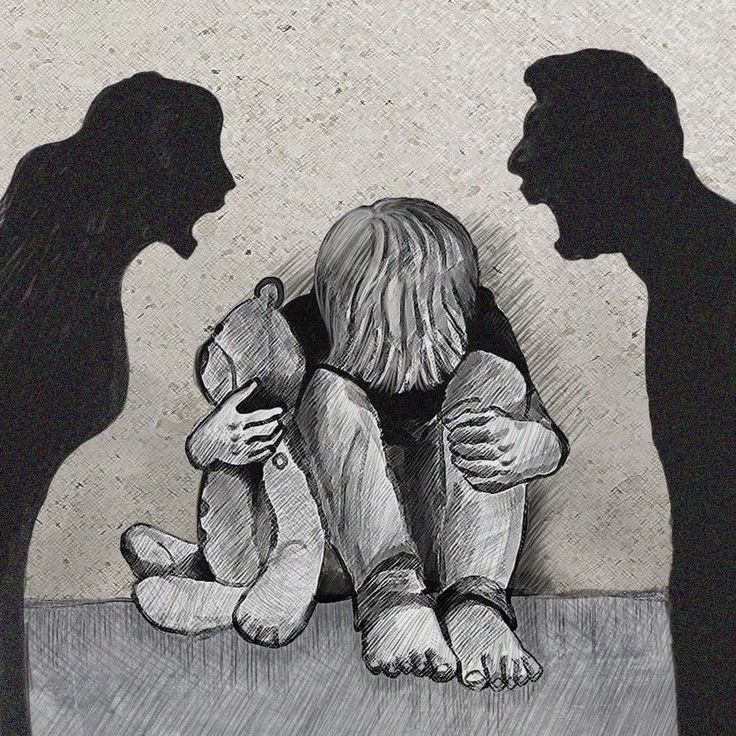Solo Living: Why More Young People are Choosing Independence Over Marriage

Introduction
In a continent once defined by the sanctity of family bonds, communal living and preserving family heritage, a quiet but powerful revolution is reshaping how young people view marriage. From Accra to Nairobi, from Dakar to Freetown, the age-old institution of marriage is being questioned like never before. Increasingly, young adults are choosing to embrace independence, financial freedom, and personal growth over the traditional path of marriage.
At the heart of this shift lies a complex mix of divorce rates, broken homes, unspoken emotional traumas, and the cultural weight that often silences honest discussions about family life, especially in many African societies. For many, marriage is no longer seen as a natural milestone but as a choice weighed against the scars of those who walked that path before them.
The Advent of Divorces and a Shifting Institution
Statistics speak louder than cultural ideals. Globally, divorce rates have surged in the last three decades, and Africa is no exception. While many African communities once prided themselves on the durability of marriages, new realities tell a different story. Urbanization, globalization, and evolving gender roles have unsettled old traditions.
Various countries in Africa, for example, has witnessed a steady rise in marital breakdowns. What was once whispered behind closed doors is now openly filed in courts. Couples are parting ways over irreconcilable differences, infidelity, financial instability, and sometimes the simple realization that they were never truly compatible in the first place.
Divorce, however, is not just about two adults signing papers. It is about homes split into two worlds, children shuffled between parents, and generations questioning the very idea of marital permanence.
The Trauma of Broken Homes on Children
For every fractured marriage, there are often children caught in the middle. Their innocence becomes collateral damage in conflicts they did not create.
Studies have shown that children from broken homes often battle with issues such as insecurity, low self-esteem, trust issues, and difficulty forming stable relationships later in life. In African societies, where extended families often step in, the psychological wounds remain hidden beneath a veneer of communal support.

A child raised in an environment of constant fights, silent treatments, or sudden disappearances learns early that love is fragile and conditional. They grow up skeptical of long-term commitments, silently vowing never to replicate the pain they experienced.
It is this generational trauma that is now surfacing in adulthood, when these children, now young professionals, confront the decision of whether to marry or not.
Culture
Read Between the Lines of African Society
Your Gateway to Africa's Untold Cultural Narratives.
The Emotional Silence in African Homes
Perhaps one of the least discussed yet most powerful drivers of the solo-living trend is the emotional silence that characterizes many African homes.
Culturally, marriage has long been treated as a duty rather than an emotional partnership. A husband is expected to provide. A wife is expected to endure. Children are expected to obey. Emotions, vulnerability, and mental health rarely make it into the family conversation.
This silence breeds resentment. Many women suffer quietly in abusive relationships because leaving is seen as shameful. Many men drown under the burden of providing without ever admitting their struggles. And children, watching all of this, learn to equate marriage with sacrifice, repression, and unhappiness.
The result? A subtle rebellion. Young Africans are increasingly rejecting the idea of following in their parents’ footsteps. Instead, they are seeking lives where they can prioritize careers, emotional well-being, and financial independence living the life of their dreams.
The Silent Rebellion Against Marriage
Unlike past generations, today’s youth are not staging open revolts against cultural norms. Their rebellion is quieter but far-reaching: they simply choose not to marry.
In Nigeria, South Africa, and Kenya, urban youth are delaying marriage until their mid-30s or opting out entirely. Across Europe and America, solo living has become a celebrated lifestyle rather than a stigma. Social media amplifies this narrative, showing glamorous images of single women and men thriving on their own terms, traveling, building businesses, and nurturing friendships.
For many, staying single is no longer seen as loneliness but as freedom—freedom from societal pressure, from legal complications, from emotional trauma.
The Economics of Independence
Another factor fueling the rise of solo living is financial independence.

Unlike their parents, many young Africans now see the importance of securing a stable career and becoming financially independent before considering marriage. Women, in particular, are breaking away from economic dependency. With more female driven goal achievers, entrepreneurs, and professionals in the workforce, the narrative of marriage as a financial safety net is losing grip.
Culture
Read Between the Lines of African Society
Your Gateway to Africa's Untold Cultural Narratives.
Men, too, are rethinking their role. In an era where the cost of living is rising, many young men are hesitant to take on the financial obligations that come with marriage and children. Independence, for them, offers a safer, more manageable lifestyle.
The Global Influence on African Choices
Africa is not isolated from global shifts. Exposure to Western lifestyles through movies, music, and social media has introduced new perspectives.
In many Western countries, singlehood is not only normalized but celebrated. The rise of terms like “self-partnered” and movements around individualism have seeped into African cities, where youth are increasingly cosmopolitan in outlook.
This does not mean traditional African values are disappearing. Instead, they are being reinterpreted. For instance, while communal living and family remain central, the definition of “family” is expanding to include close friends, mentors, and even digital communities.
The Pushback: Critics of Solo Living
Of course, not everyone sees solo living as progress. Many critics would argue that the decline in marriages weakens the very fabric of society.
In African cultures where extended family systems thrive, marriage has always been the cornerstone of continuity, inheritance, and lineage. Elders fear that abandoning this tradition could lead to cultural erosion.
Religious leaders, too, voice concerns. In Christianity, Islam, and African traditional religions, marriage is upheld as sacred. To reject it, they warn, is to reject divine order.
Yet, even as critics speak, young people are charting new paths, some seeking alternative partnerships such as cohabitation, some exploring polyamory, while others embrace lifelong singlehood.
The Cultural Double Standard
One striking reality is the double standard around solo living in African societies.
Culture
Read Between the Lines of African Society
Your Gateway to Africa's Untold Cultural Narratives.
A man who remains unmarried into his late 30s is often described as “focused” or “still searching.” A woman in the same position, however, is branded as “incomplete” or “unlucky.”
This double standard is part of what fuels young women’s rebellion. For them, choosing independence is not just a lifestyle choice but a cultural statement: I am enough without a husband.
What This Means for the Future
The rise of solo living is not just a trend; it is a cultural transformation.

It signals a world where young people are redefining family, rewriting cultural expectations, and reclaiming control over their lives. While marriage will not disappear, it still holds meaning for many, it will no longer be a default destination. Instead, it will be a deliberate, carefully considered choice.
For Africa, this shift presents both challenges and opportunities. The challenge lies in balancing tradition with modern realities. The opportunity lies in creating healthier, more emotionally conscious partnerships for those who do choose marriage.
Conclusion
Whether seen as rebellion or liberation, the rise of solo living is a response to the unspoken truths of marriage, divorces, broken homes, emotional trauma, and cultural silence. For many young Africans, independence is not about rejecting love but about refusing to repeat cycles of pain.
And perhaps, in that choice, lies the truest form of revolution: the courage to build a life on one’s own terms.
Culture
Read Between the Lines of African Society
Your Gateway to Africa's Untold Cultural Narratives.
Recommended Articles
Funmilayo & Dami: 12 Years of Matrimony, Still Unraveling Each Other's Secrets!

Discover the inspiring love story of Dr. Funmilayo and Dr. Dami, who transitioned from medical college classmates to a m...
Naomi & Dickson's Fairytale Romance: How They Found Love at a Wedding!

At a wedding celebrating eternal love, Dickson found his own forever when he met Naomi. Their enchanting journey, sparke...
You may also like...
Ndidi's Besiktas Revelation: Why He Chose Turkey Over Man Utd Dreams

Super Eagles midfielder Wilfred Ndidi explained his decision to join Besiktas, citing the club's appealing project, stro...
Tom Hardy Returns! Venom Roars Back to the Big Screen in New Movie!

Two years after its last cinematic outing, Venom is set to return in an animated feature film from Sony Pictures Animati...
Marvel Shakes Up Spider-Verse with Nicolas Cage's Groundbreaking New Series!

Nicolas Cage is set to star as Ben Reilly in the upcoming live-action 'Spider-Noir' series on Prime Video, moving beyond...
Bad Bunny's 'DtMF' Dominates Hot 100 with Chart-Topping Power!

A recent 'Ask Billboard' mailbag delves into Hot 100 chart specifics, featuring Bad Bunny's "DtMF" and Ella Langley's "C...
Shakira Stuns Mexico City with Massive Free Concert Announcement!

Shakira is set to conclude her historic Mexican tour trek with a free concert at Mexico City's iconic Zócalo on March 1,...
Glen Powell Reveals His Unexpected Favorite Christopher Nolan Film

A24's dark comedy "How to Make a Killing" is hitting theaters, starring Glen Powell, Topher Grace, and Jessica Henwick. ...
Wizkid & Pharrell Set New Male Style Standard in Leather and Satin Showdown

Wizkid and Pharrell Williams have sparked widespread speculation with a new, cryptic Instagram post. While the possibili...
Victor Osimhen Unveils 'A Prayer From the Gutter', Inspiring Millions with His Journey

Nigerian football star Victor Osimhen shares his deeply personal journey from the poverty-stricken Olusosun landfill in ...
